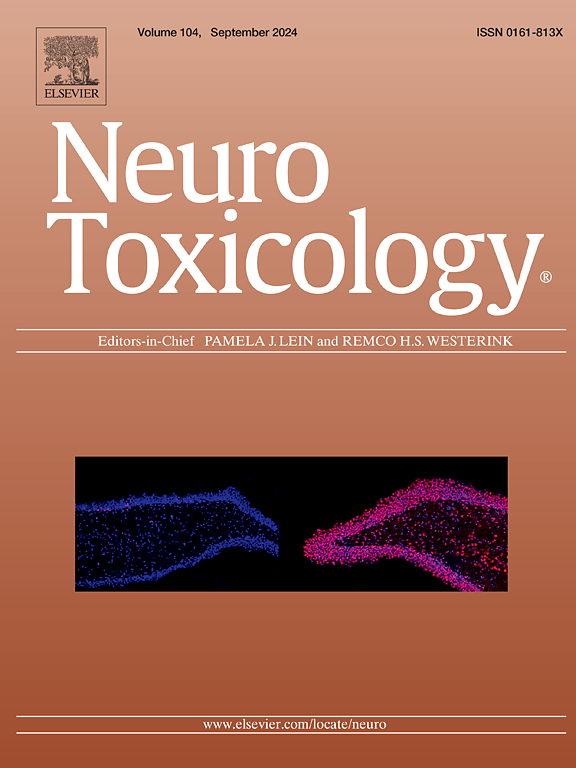柴油尾气颗粒通过炎症、氧化应激和RhoA/ROCK信号通路的激活诱导血脑屏障功能障碍。
IF 3.9
3区 医学
Q2 NEUROSCIENCES
引用次数: 0
摘要
柴油发动机排放的柴油废气颗粒(DEPs)是环境颗粒物的重要组成部分。广泛的研究表明,DEPs对人类健康构成重大风险。本研究旨在阐明deps诱导血脑屏障功能障碍的分子机制。研究小组揭露了本德。将3个细胞置于不同浓度的DEPs中24小时,并评估细胞形态学、活力、炎症标志物、氧化应激、紧密连接蛋白表达和RhoA/ROCK信号通路的调节等参数。结果表明,DEPs暴露导致细胞形态学和超微结构改变,细胞凋亡率升高,细胞活力降低。此外,DEPs刺激促炎细胞因子的释放,诱导氧化应激,破坏紧密连接蛋白表达,增加血脑屏障通透性,激活RhoA/ROCK信号通路,从而放大这些有害影响。总的来说,我们的研究结果表明,DEPs通过一系列细胞损伤机制损害血脑屏障功能。这些发现强调了空气污染对中枢神经系统的深远影响,并强调了对柴油排放进行严格监管以保护大脑健康的迫切需要,特别是在城市地区高暴露于交通相关排放的人群中。本文章由计算机程序翻译,如有差异,请以英文原文为准。
Diesel exhaust particles induced blood-brain barrier dysfunction through inflammation, oxidative stress, and activation of the RhoA/ROCK signaling pathway
Diesel Exhaust Particles (DEPs) emitted by diesel engines represent a substantial contributor to ambient particulate matter. Extensive research has demonstrated that DEPs pose significant risks to human health. This study seeks to elucidate the molecular mechanisms underlying DEPs-induced dysfunction of the blood-brain barrier (BBB). The research team exposed bEND.3 cells to various concentrations of DEPs for 24 h and evaluated parameters including cell morphology, viability, inflammatory markers, oxidative stress, tight junction protein expression, and modulation of the RhoA/ROCK signaling pathway. The findings revealed that DEPs exposure resulted in morphological and ultrastructural alterations, elevated apoptosis rates, and reduced cell viability. Additionally, DEPs stimulated the release of pro-inflammatory cytokines, induced oxidative stress, disrupted tight junction protein expression, increased BBB permeability, and activated the RhoA/ROCK signaling pathway, thereby amplifying these deleterious effects. Collectively, our results demonstrate that DEPs impair BBB functionality through a cascade of cellular injury mechanisms. These findings highlight the profound impact of air pollution on the central nervous system and underscore the urgent need for stringent regulations on diesel emissions to protect brain health, particularly among populations in urban areas with high exposure to traffic-related emissions.
求助全文
通过发布文献求助,成功后即可免费获取论文全文。
去求助
来源期刊

Neurotoxicology
医学-毒理学
CiteScore
6.80
自引率
5.90%
发文量
161
审稿时长
70 days
期刊介绍:
NeuroToxicology specializes in publishing the best peer-reviewed original research papers dealing with the effects of toxic substances on the nervous system of humans and experimental animals of all ages. The Journal emphasizes papers dealing with the neurotoxic effects of environmentally significant chemical hazards, manufactured drugs and naturally occurring compounds.
 求助内容:
求助内容: 应助结果提醒方式:
应助结果提醒方式:


